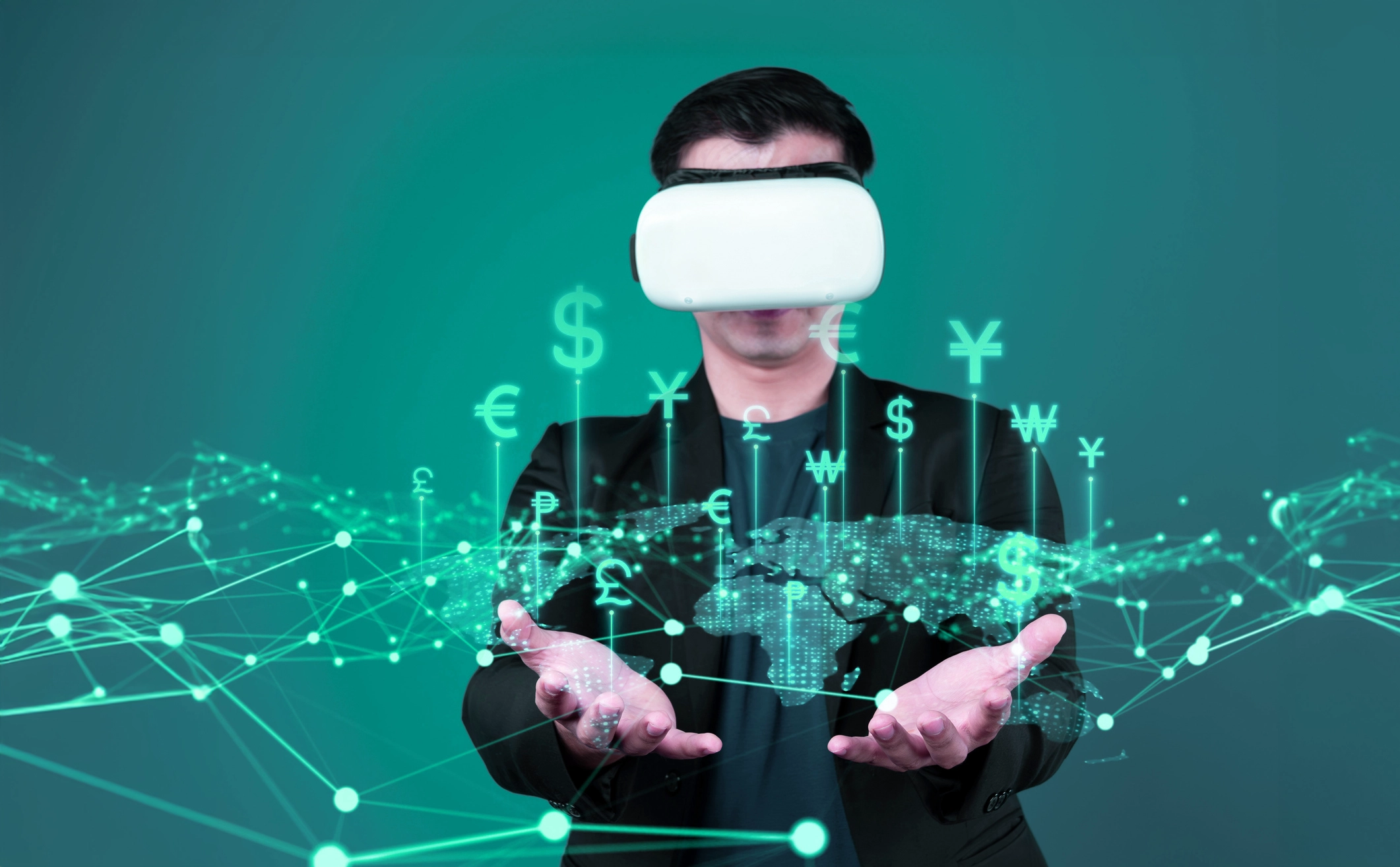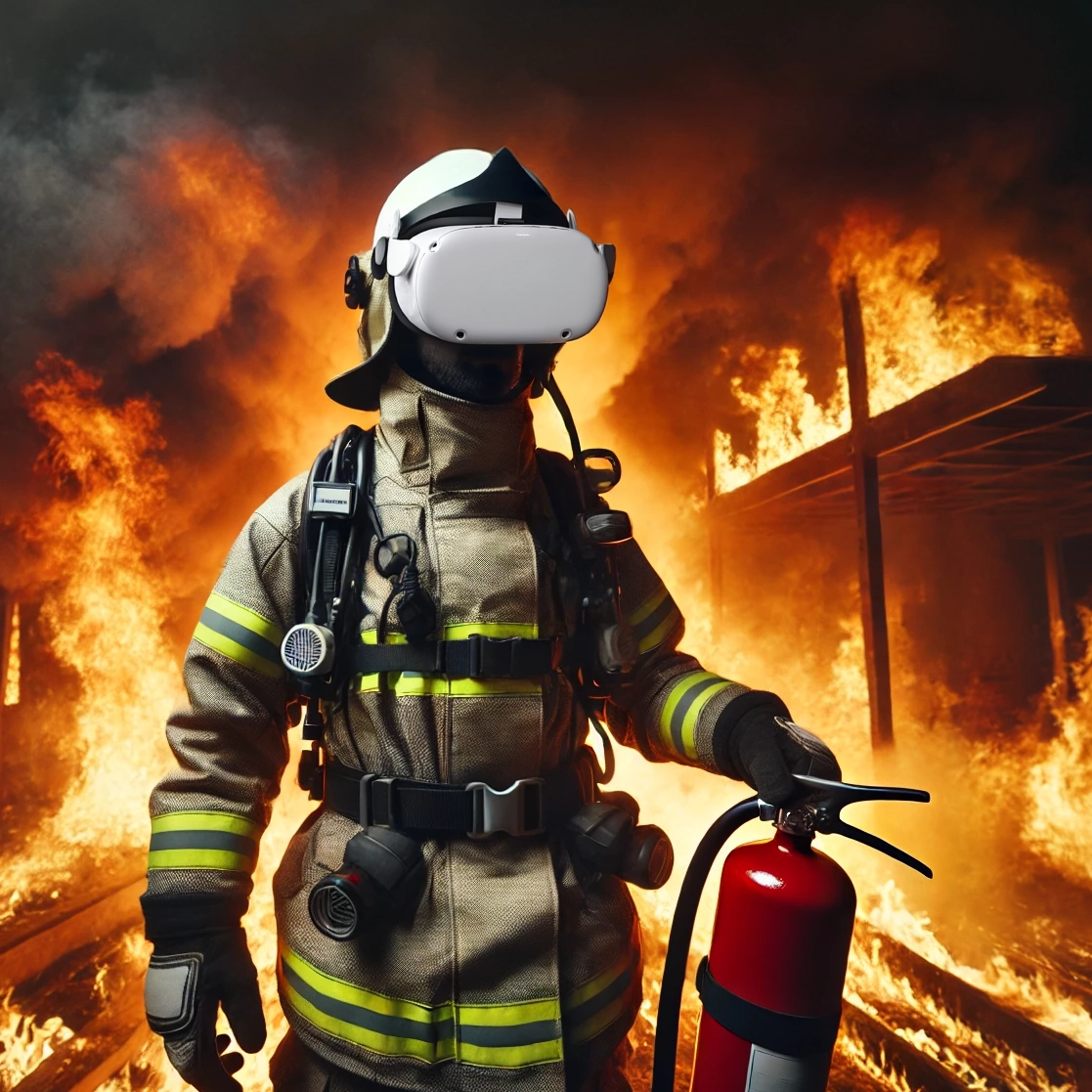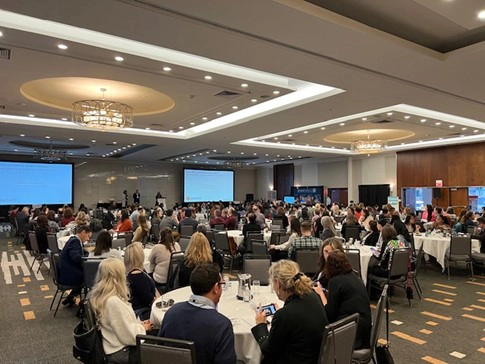
Simulation Canada, which is an interprofessional non-profit organization that works to forward the use of simulations in healthcare and other industries, hosted their flagship conference SIM Expo 2023 this year in Ottawa from December 11th-12th, 2023. This event brought together experts, educators, industry workers, and service providers from the world of health care and beyond to learn from and interact with different people and groups that are utilizing the use of simulation in their training, educational opportunities, and professional development. This may include everything from to-scale models of humans with different functionalities designed within them to technologies that help to enhance the reality of a simulated learning environment. Sessions were run throughout the day where participants could choose to attend talks and interactive activities that fit their skills and area of interest, with keynote speakers beginning each day. There were also many different exhibiting partners that had vendor booths set up around the conference to showcase some of the products and services that would facilitate and enhance different simulation setups.
The Learning Network (TLN) was invited to be an exhibitor throughout the two-day event. We were represented by Caroline Dupuis, Senior VP of XR Products, Shona McCarty, Senior Account Manager, Greg Surbey, Co-Founder of ICOM Productions, and myself. Our team had the opportunity to demo our PatientAssessment VR, the immersive simulation for nurses and nursing students to perform various types of medical assessment on a variety of different virtual patients that was developed in partnership with Bow Valley College for their Practical Nursing program.
This partnership was a part of Bow Valley College’s presence at the conference as well, as their Practical Nursing program was nominated for the SIM Innovator Award. Their use of TLN’s PatientAssessment VR program has been a big part of their student’s “Clinical 1” learning stage, and it has helped them to cut down on hands-on training time by as much as 30% during this stage in their educational program.
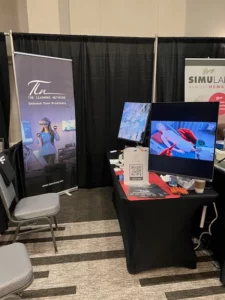 During the two-day event, the TLN team met with many professionals in different roles attending the conference to showcase our innovative VR learning platform. We provided live and in-person demos of PatientAssessment VR on the Meta Quest 3 headset, and attendees were able to step into the virtual hospital room with any of the different patient avatars to check them for more than a dozen different ailments. They could use the stethoscope to listen to the patient’s heartbeat and breathing patterns, check their pupils for proper dilation, and even use a flashlight to look down a patient’s throat to check for inflammation. For many people that came up to the booth, it was their first time using a VR headset, and many of them walked away amazed at how useful it could be as a training tool.
During the two-day event, the TLN team met with many professionals in different roles attending the conference to showcase our innovative VR learning platform. We provided live and in-person demos of PatientAssessment VR on the Meta Quest 3 headset, and attendees were able to step into the virtual hospital room with any of the different patient avatars to check them for more than a dozen different ailments. They could use the stethoscope to listen to the patient’s heartbeat and breathing patterns, check their pupils for proper dilation, and even use a flashlight to look down a patient’s throat to check for inflammation. For many people that came up to the booth, it was their first time using a VR headset, and many of them walked away amazed at how useful it could be as a training tool.
As we spoke with many of the health care educators that attended the conference, we were able to talk a lot about Bloom’s Taxonomy of Learning. For those that are new to this idea, Bloom’s defines three different domains where learning can take place: Cognitive (or knowledge-based), Affective (or emotion-based), and Psychomotor (or action-based). Each domain has levels that get progressively come complex and nuanced as they increase; for example, the base level of the Cognitive domain is “knowledge”, which is essentially the recognizing and remembering of simple facts, while the highest level of the domain is “evaluation, where you can present and defend an opinion that is based on the quality, and validity of information-based ideas. Where VR learning projects (and other XR products) really shine in terms of Bloom’s is the ability for them to train people at a higher level within the Affective and Psychomotor domains. The hands-on training opportunity that PatientAssessment VR provides most definitely offers enhancements to the Psychomotor domain, as one might imagine, but the impacts on the learner’s Affective domain can be great as well. One thing that the team from Bow Valley College has notes with their students is how the VR training helps many of their learners to get over the initial anxiety response to being in the situation of assessing a patient one-on-one, which is a skill that normally isn’t able to really be developed until the student gets into an actual clinical practicum setting. Training in PatientAssessment VR gives them more familiarity and practice with their own emotional responses and allows them to become accustomed to the setting, which eventually leads them to a higher level of learning and (eventually) being ready for their workplace quicker.
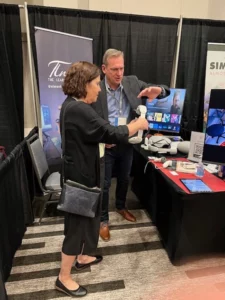 This was TLN’s first involvement with the world of health care simulation as a whole, and SIM Expo was a fantastic place to learn as well as meet so many knowledgeable people and dynamic programs and institutes that are looking to enhance how people work within and train for a career in health care. The conferences keynote speakers brought a wealth of knowledge on the topics they spoke of, and the breakout sessions offered a huge variety of topics to engage attendees with unique interests and perspectives. All four members of the TLN team were also very impressed by the friendly Simulation Canada team and the organization of the event. As one of the “new kids on the block” in terms of first-time exhibitors, they made us feel welcome throughout and valued our feedback as vendors to current and future conferences.
This was TLN’s first involvement with the world of health care simulation as a whole, and SIM Expo was a fantastic place to learn as well as meet so many knowledgeable people and dynamic programs and institutes that are looking to enhance how people work within and train for a career in health care. The conferences keynote speakers brought a wealth of knowledge on the topics they spoke of, and the breakout sessions offered a huge variety of topics to engage attendees with unique interests and perspectives. All four members of the TLN team were also very impressed by the friendly Simulation Canada team and the organization of the event. As one of the “new kids on the block” in terms of first-time exhibitors, they made us feel welcome throughout and valued our feedback as vendors to current and future conferences.
TLN would like to thank Simulation Canada so much for having us as an exhibitor at the 2023 SIM Expo, and also to the team at Bow Valley College’s Practical Nursing program for partnering with us on the PatientAssessment VR program!
Leave a comment
You must be logged in to post a comment.



